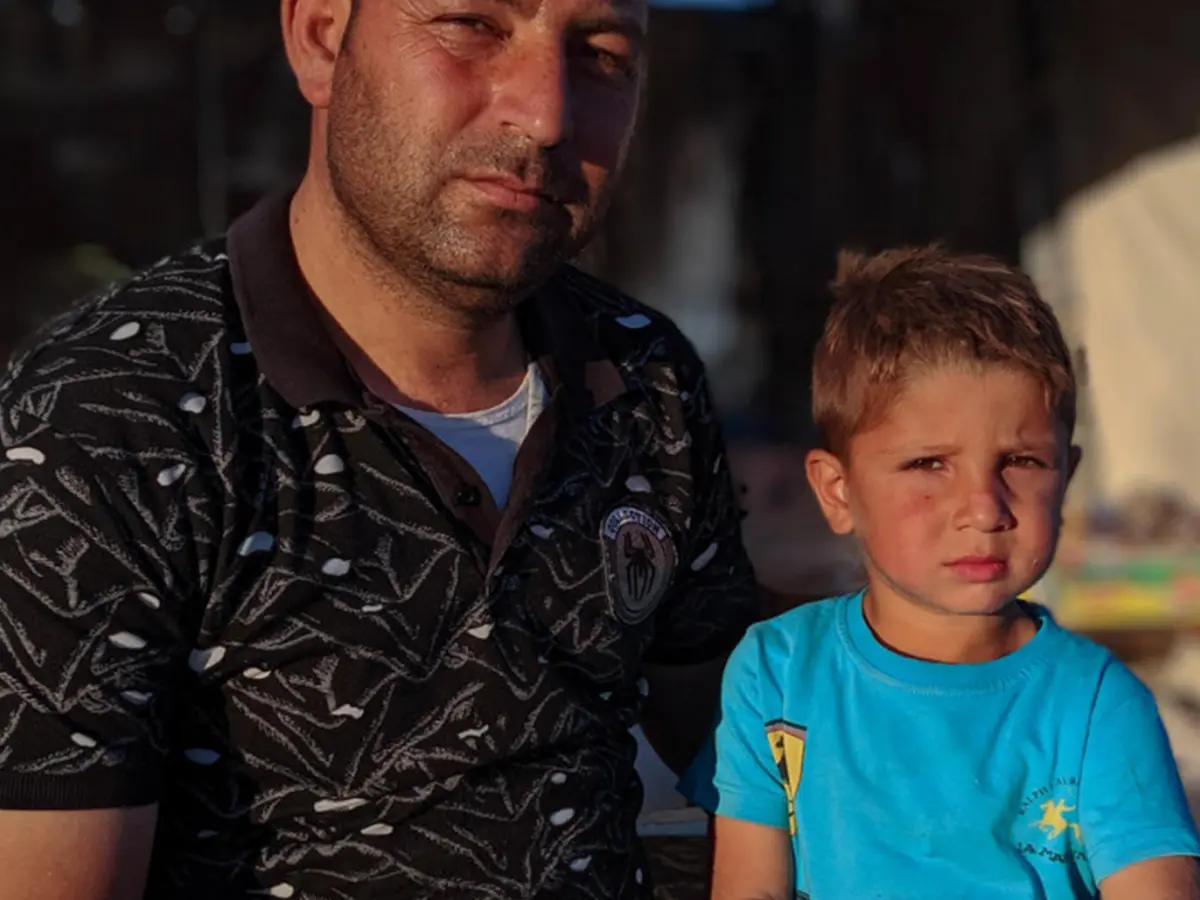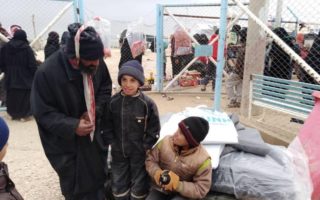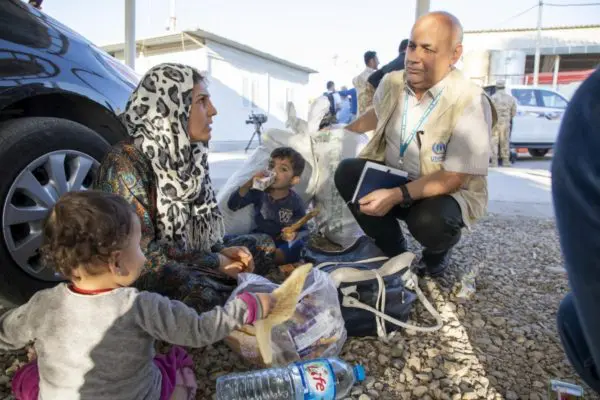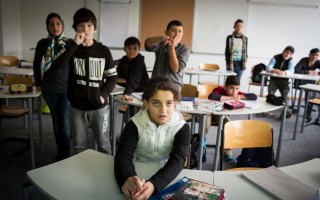
Mustafa and his son sit outside his makeshift grocery store in Bardarash Refugee Camp. © UNHCR/Firas Al-Khateeb
Mustafa and his family have fled to Iraq five times since the start of the Syria crisis, but having lost his home and business in the latest violence he fears for their future.
But after escaping the most recent violence to sweep through his hometown in October, this time he says he is not sure when – or even if – they will go home.
“Every time we left before, I knew we would be going back soon. We would stay in Iraq for three or four months until the situation improved, then return,” he explained. “But this time I don’t think it will be so easy. We’ve lost our home, our furniture, our merchandise, our land, our car. It is a very difficult situation.”
Since the outbreak of fighting across north-east Syria at the start of October, some 19,300 people have sought refuge in the Kurdistan Region of Iraq (KRI).
Mustafa had been braced for the threat of fresh fighting, but was still surprised by how quickly the situation deteriorated. “We saw many people fleeing, so we thought there must be something happening,” he said. “People around us received calls saying that an attack was imminent, but before we were able to flee the bombardment started.”
He took his wife and five children in a convoy of cars together with nearly 50 members of their extended family and headed to nearby Tal Tamer. Fearing further attacks there, however, they made their way to the Iraqi border in a stop-start journey of some 200 kilometres, which lasted five days and left his children terrified.
“There was chaos, the roads were not safe,” Mustafa said. “The experience has affected the mental state of my children. Even now, when they see a civilian plane flying overhead, they get scared.”
After crossing into KRI, the family were brought to Bardarash refugee camp, which lies between the cities of Duhok and the regional capital Erbil, and is currently host to more than 7,500 Syrians.
“We are fed up.”
As with all new arrivals, UNHCR – the UN Refugee Agency – and its partners provided Mustafa and his family with tents, mattresses, blankets, rugs and other essential items including kitchen sets, kerosene heaters and fuel. “At least we are safe, but the situation here is still very hard,” Mustafa said of the camp.
“I feel miserable and weak having to leave my home, as if I am a beggar having to ask people for help,” he said. “I am 36 years old, but I feel like I’m 90. We are fed up.”
The owner of a motorcycle sales business back in Syria, Mustafa wanted to do what he could in the camp to alleviate his sense of helplessness and provide an income. He constructed makeshift premises and borrowed money from relatives to purchase stock, and opened a small stall behind the family’s tent selling basic groceries, soft drinks and snacks.
“Having the shop makes me feel that at least I am doing something useful for my family,” he explained. “Despite the small profits, I am able to make a living.”
“My kids are sick and tired of this life.”
Mustafa expressed his concern at the prospect of potentially spending months living in tents, with hazards such as fires and the bitter winter weather playing on his mind. But it is the long-term impact of repeated displacement on his family, particularly his children, that cause him the greatest anguish.
“My priority is to provide a living for my family, so they can have what they need – enough clothes, food, and a good education so they can have a better life,” he said. “My role is to provide for them, but our circumstances keep on getting worse every year, and this time we have lost everything.”
“My eldest daughter is 14, but she still can’t read properly because her education has been disrupted so many times,” he added. “My kids are sick and tired of this life, and if they can’t even go to school, what kind of future will they have?”
Originally published on UNHCR on 09 January 2020





